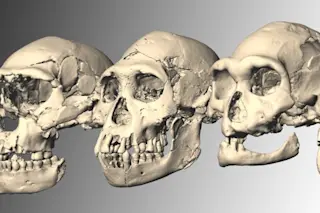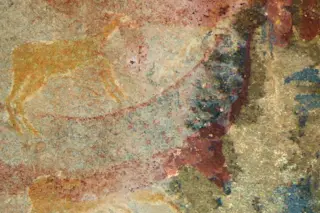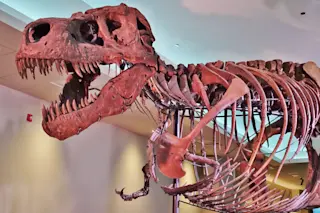Five skulls from the same time period, including the world's first complete adult skull of the Early Pleistocene (far right), suggest early hominids may have been a single Homo species. Image courtesy of M. Ponce de Leon and Ch. Zollikofer, University of Zurich, Switzerland. Our family tree may have just lost a few branches. A complete skull found in the Eurasian country of Georgia could be evidence that early hominids are actually all members of a single species. The view challenges long-held ideas about human evolution and could upend decades of classifying early hominids into different species, such as Homo erectus,Homo rudolfensis and Homo habilis. Researchers publishing their analysis of the 1.8 million year old find in Science today argue that the skull's combination of primitive and more evolved features make it difficult to classify by currently accepted definitions of early hominid species. In addition, variations between the skull and ...
Hominid Skull Spurs Radical Rewrite of Human Evolution
Skull 5's discovery in Dmanisi Georgia may prove early hominids were a single species, challenging previous classifications of human evolution.
More on Discover
Stay Curious
SubscribeTo The Magazine
Save up to 40% off the cover price when you subscribe to Discover magazine.
Subscribe













